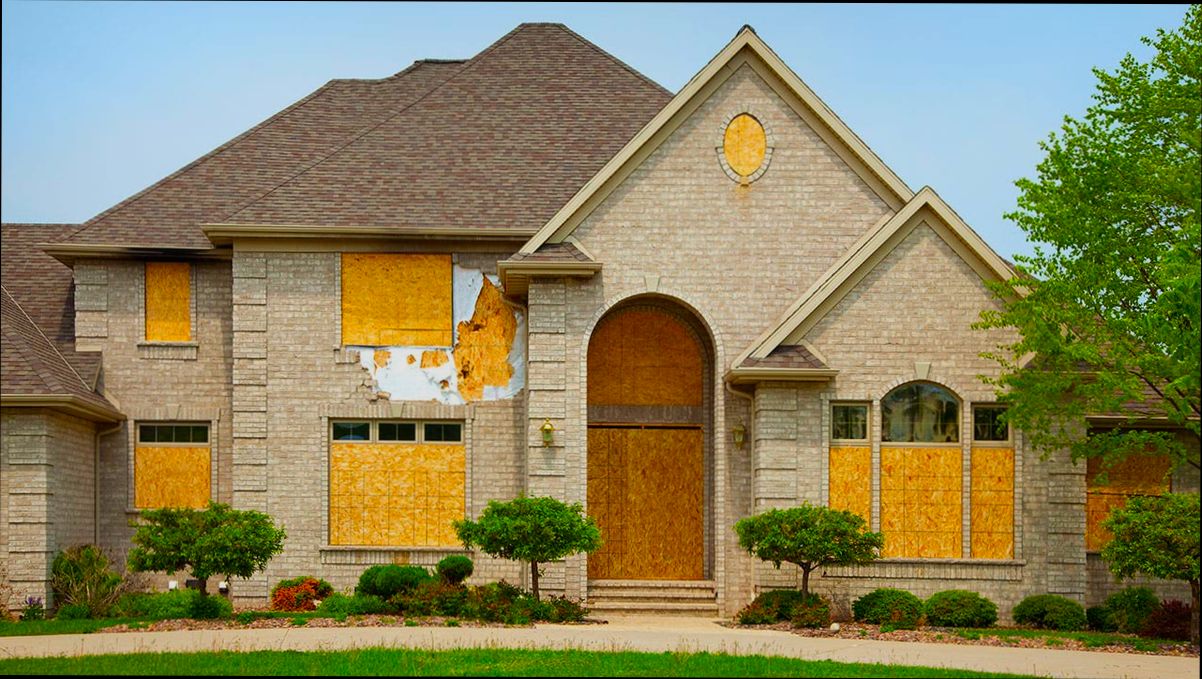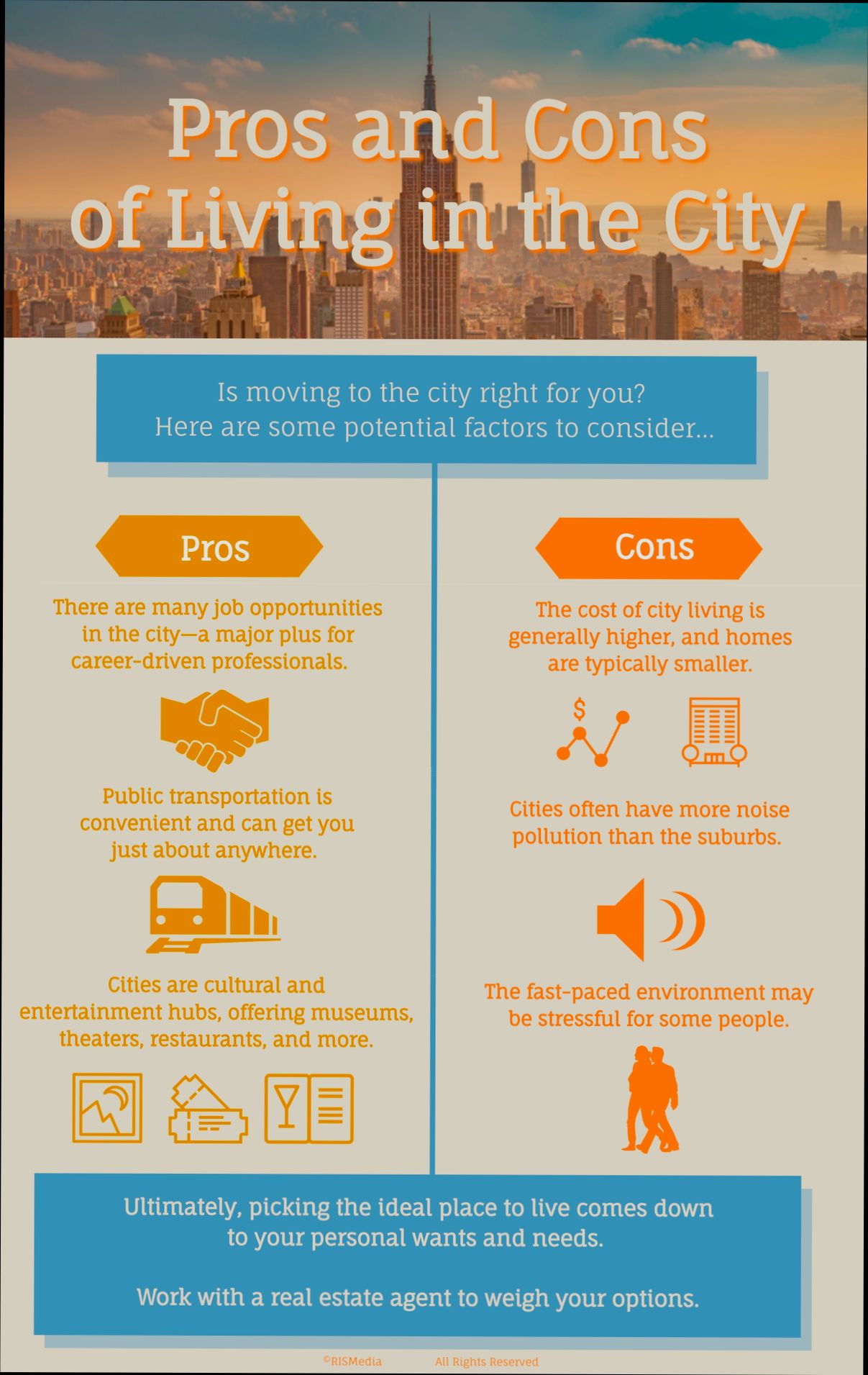How to Buy Foreclosed Homes can feel like navigating a maze, but it’s not as daunting as it seems. Across the U.S., thousands of properties end up in foreclosure each year—over 300,000 in 2022 alone. That’s an ocean of opportunity for savvy buyers willing to do their homework! Picture yourself snagging a three-bedroom home for as little as 70% off its market value, potentially saving tens of thousands. Just think about what you could do with that kind of cash in your pocket!
But before you jump in, it’s crucial to understand the landscape. Foreclosures come in different flavors: pre-foreclosures, auctions, and bank-owned properties, each with its own quirks. For instance, homes sold at auction often require full payment upfront, and they may not even allow for an inspection. Imagine finding yourself at a bidding war, heart racing, all for a house you can’t check out first. Knowing the ropes can make the difference between a dream home and a money pit. So, buckle up as we explore how to navigate this exciting yet tricky terrain!
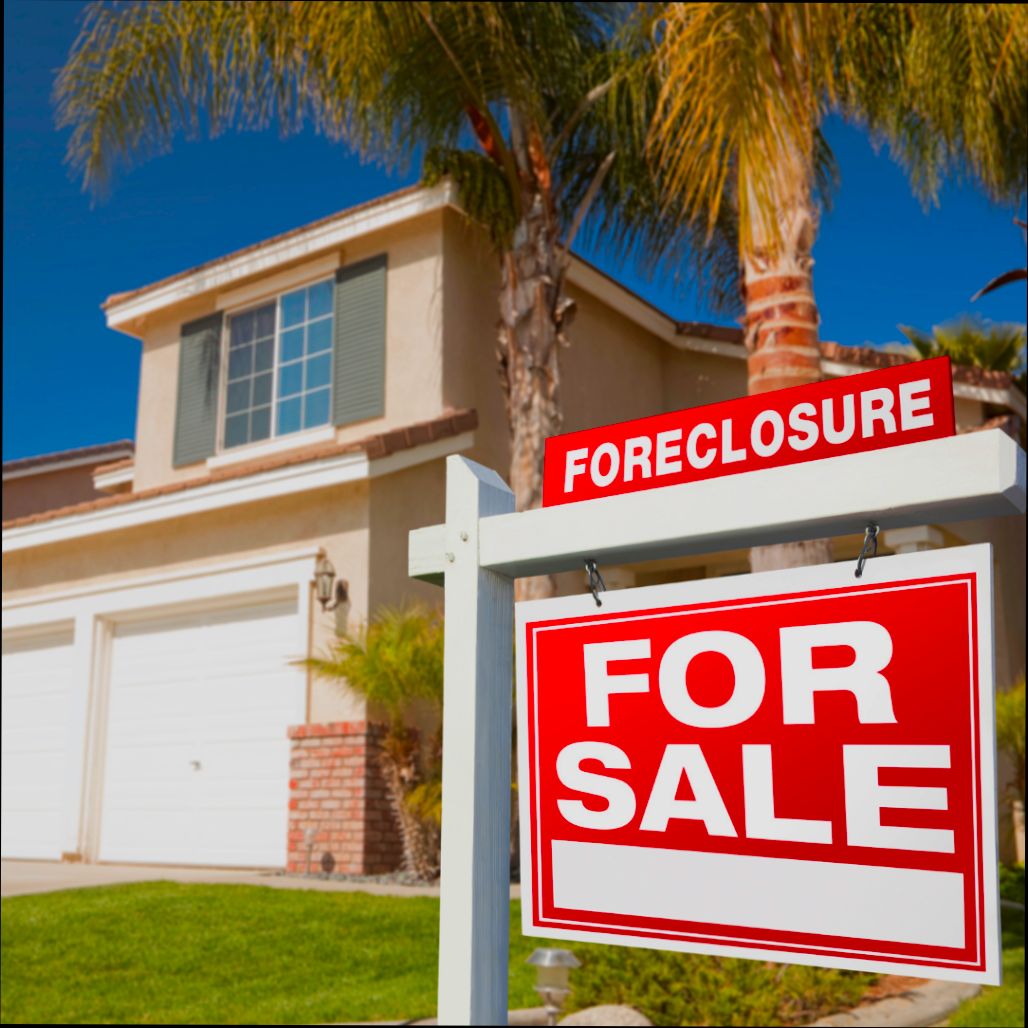
Understanding the Foreclosure Process
Foreclosure can seem daunting for many, but understanding the process is your first step toward seizing the opportunity of buying a foreclosed home. Knowing how foreclosures work allows you to navigate the complexities and make informed decisions. Let’s dive into the foreclosure process, step by step.
Key Stages of the Foreclosure Process
The foreclosure process typically unfolds in several key stages:
1. Pre-foreclosure: This begins when the homeowner defaults on their mortgage payments. They often receive a notice of default, and this period can last anywhere from a few months to over a year. Approximately 70% of properties that enter pre-foreclosure are eventually sold before the auction.
2. Foreclosure Auction: If the homeowner does not remedy the situation, the lender can initiate a foreclosure auction. Properties sold at auction are usually sold at 60-70% of their market value.
3. Post-Auction: If the home does not sell at the auction, the lender takes possession of the property, marking it as a Real Estate Owned (REO) property. Nearly 10% of properties go from auction to being REO.
4. Redemption Period: Some states offer a redemption period, allowing the previous homeowner a chance to reclaim the property by paying off the mortgage. This period can last anywhere from a few weeks to a few months depending on the state laws.
| Stage | Duration | Typical Sale Price as Percentage of Market Value |
|---|---|---|
| Pre-foreclosure | Few months to over a year | 100% (market value) |
| Foreclosure Auction | A few weeks | 60-70% |
| Post-Auction | Indefinite until sold | 40-50% (common for REO sales) |
| Redemption Period | Varies by state | N/A |
Real-World Examples
Consider a real-life case where a homeowner in California defaulted on a $300,000 mortgage. After entering pre-foreclosure, they had six months to work out their financial situation. During this time, the property went to auction and sold for $180,000—a 60% reduction. The unfortunate homeowner missed their chance to rectify the situation.
On the other hand, in Texas, a homeowner was able to repay their missed payments within the redemption period, allowing them to retain their home before it entered the auction phase. Texas allows homeowners to redeem their properties by paying back the mortgage, taxes, and applicable fees.
Practical Implications
Understanding the foreclosure timeline is crucial for you as a buyer. Knowing when to act—whether it’s during the pre-foreclosure phase or post-auction—can open up lucrative buying opportunities.
- Be proactive during the pre-foreclosure phase; reaching out to homeowners may lead to negotiating a favorable deal before the auction.
- Familiarize yourself with the laws regarding redemption periods in your state, as this can affect your purchasing strategy for auctioned properties.
- Consider participating in foreclosure auctions, but set a strict budget to avoid overpaying, as properties typically sell 60-70% below market value.
Knowing these stages, timelines, and examples means you’re better equipped to navigate the foreclosure landscape effectively, making informed choices that align with your buying goals.
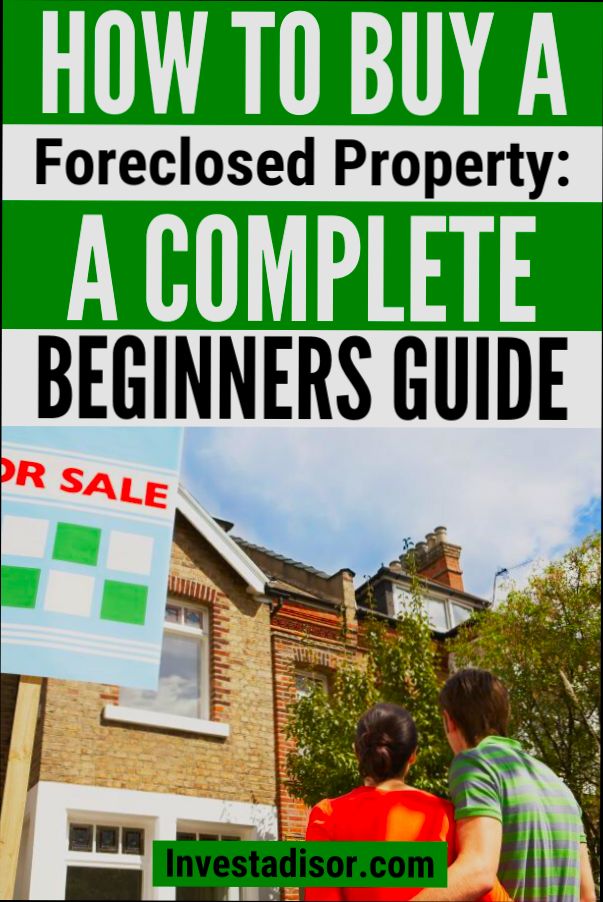
Evaluating the Financial Risks Involved
When considering the purchase of foreclosed homes, evaluating the financial risks becomes crucial. You want to ensure that you fully understand the potential vulnerabilities that could impact your investment. Let’s break down this evaluation into manageable components.
Key Types of Financial Risks
Understanding various types of financial risks can help clarify potential challenges. Here’s a breakdown:
- Market Risk: The instability of real estate markets can lead to fluctuations in home values. For instance, a downturn could reduce the resale value of your new property.
- Credit Risk: If the previous owners could not pay their mortgage, similar risks may apply to your financing options.
- Operational Risk: Any mismanagement during property management can lead to additional financial losses, particularly if extensive repairs become necessary.
- Liquidity Risk: Once you buy a foreclosed home, ensure you have enough cash reserves. Should you need to sell quickly, market conditions could limit your options.
- Legal Risk: Foreclosed properties may come with legal entanglements; understanding these is critical to mitigate unexpected costs.
Comparative Risks Table
| Type of Risk | Description | Impact Potential |
|---|---|---|
| Market Risk | Changes in real estate values | High |
| Credit Risk | Potential issues with financing | Medium |
| Operational Risk | Costs from repairs or mismanagement | High |
| Liquidity Risk | Difficulty selling the property quickly | Medium to High |
| Legal Risk | Complications from previous ownership | High |
Real-World Examples of Financial Risks
1. Market Risk: A study revealed that foreclosed properties could lose up to 50% of their value during a market downturn. If you bought a home for $300,000 and the market crashes, its value might drop to $150,000.
2. Liquidation Risks: A buyer in 2021 faced a liquidity issue after purchasing a foreclosed property. They had to sell it below market value due to unexpected repairs, impacting their cash flow and overall financial health.
3. Legal Entanglements: A case highlighted that a buyer inherited a lawsuit from the previous owner, costing them thousands in legal fees and unexpected delays in ownership.
Practical Implications for Evaluating Financial Risks
To safeguard against financial loss:
- Conduct Thorough Market Research: Assess local market trends and property values. Examine fluctuation patterns over the past several years to better understand potential future outcomes.
- Analyze Costs Post-Purchase: Before buying, create a detailed budget that includes estimated repair and legal costs. This helps ensure that you’re not blindsided post-purchase.
- Cash Flow Planning: Monitor cash flow closely; according to Allianz Trade, businesses that do not account for potential receivables are at a higher risk of financial distress.
- Legal Review: Engage a real estate attorney to review property documents and contracts.
Actionable Advice on Evaluating Financial Risks
- Prioritize risk audits early in your buying process. Determine the severity of each risk based on specific scenarios that might affect your investment.
- Regularly revise your financial model. If interest rates rise, for instance, how would this impact your mortgage payments?
- Keep contingency funds ready; aim for at least 10% of the purchase price set aside for unforeseen expenses.
By taking these steps, you can significantly reduce your exposure to financial risks involved in purchasing foreclosed homes.

Statistics on Foreclosure Market Trends
Understanding the trends in the foreclosure market can help you navigate opportunities in real estate investment effectively. The statistics reveal insights into how foreclosures are changing over time and what they may mean for future buying prospects.
Key Foreclosure Statistics
- In 2024, the national foreclosure rate was reported at 0.23%, equating to approximately 322,103 properties in some stage of foreclosure.
- Notably, Illinois had the highest number of foreclosure filings in the first half of 2024 at 11,336 properties, representing 0.21% of its housing units, although this was a 16.7% decline from the same period in 2023.
- In contrast, Vermont reported the lowest foreclosure activity, with only 11 homes foreclosed out of 335,138 housing units, yielding an exceptional rate of one in every 30,467 households.
- As of Q3 2024, the average time to foreclose increased to 815 days, a rise of 6% from Q3 2023, indicating that while properties are moving through the process, it is taking longer to finalize outcomes.
| State | Foreclosure Rate | Number of Filings | Percentage of Housing Units |
|---|---|---|---|
| Illinois | 0.21% | 11,336 | Declined 16.7% from 2023 |
| New Jersey | 0.21% | 8,076 | Down 11.1% from 2023 |
| Maryland | 0.19% | 4,762 | Declined 18.7% from 2023 |
| Massachusetts | 0.11% | 3,411 | Up 45.6% from 2023 |
| Vermont | 0.00003% | 11 | 1 in 30,467 |
Real-World Examples of Foreclosure Trends
- Maryland demonstrated significant improvement in its foreclosure rates, ranking sixth nationally with 4,762 filings, though it still marked an 18.7% decline from the previous year, suggesting local policy changes or economic adjustments.
- In Florida, the foreclosure rate reached 1 in every 267 housing units for 2024, making it one of the top states for foreclosure activity, alongside New Jersey and Nevada. This competition for high foreclosure rates highlights regional challenges in housing markets.
- California consistently leads in the number of REO (Real Estate Owned) properties, signaling a robust environment for investors despite potential risks associated with high supply.
Practical Implications of Foreclosure Statistics
Armed with these statistics, you can strategize your investment approach. States like Illinois and New Jersey present significant opportunities for purchasing foreclosures at potentially lower prices, while understanding that timelines may be extended.
It’s vital to monitor the changing foreclosure landscape continually, as evidenced by fluctuations in filing rates. For example, the decrease in foreclosure filings across several states, including an overall 10% drop in 2024 compared to 2023, signals a stabilizing market which may influence future pricing strategies.
Actionable Advice on Navigating Foreclosure Trends
Staying informed on these statistics will enable you to identify optimal investment windows. With the average foreclosure timeline increasing, consider preparing for longer holding periods before resale. Take into account state-specific trends to make informed decisions about when and where to invest for maximum returns. Engaging with local real estate professionals who utilize this data can significantly enhance your acquisition strategy.
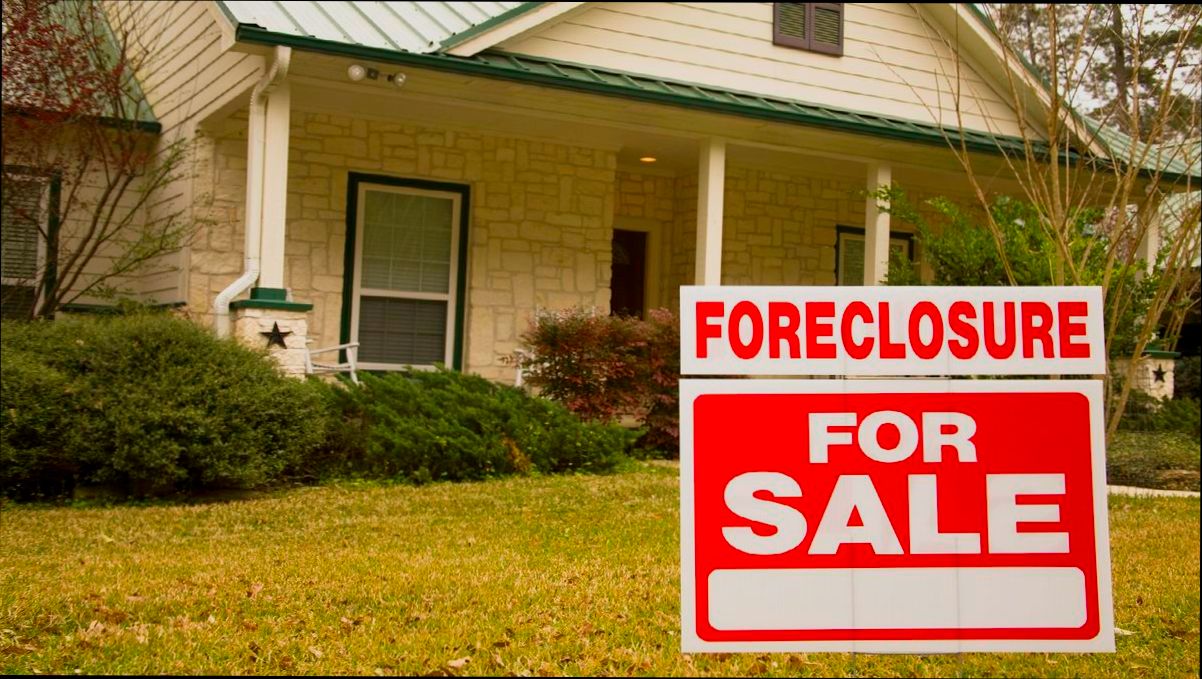
Benefits of Investing in Foreclosed Homes
Investing in foreclosed homes offers unique opportunities that can significantly benefit your financial portfolio. Whether you’re a first-time homebuyer or an experienced investor, foreclosed homes often provide favorable terms and potential for profit. Here’s why you should consider diving into this market.
Financial Advantages
1. Lower Purchase Prices: Foreclosed properties are often listed below market value, offering you the chance to buy at a discount. In many cases, homes can sell for 10-20% less than comparable properties in the area.
2. Potential for Appreciation: If you buy a foreclosed home in a recovering neighborhood, there might be significant appreciation potential. Homes purchased at lower prices can yield considerable profits as market conditions improve.
3. Financing Options: Some lenders offer special financing options for foreclosures. For example, the Department of Housing and Urban Development (HUD) may provide lower down payment programs for such properties, making it easier to purchase with less upfront investment.
4. Tax Advantages: Owning a foreclosed home may come with certain tax benefits. You can often deduct mortgage interest, property taxes, and certain expenses associated with property management.
Comparative Table: Foreclosure vs. Traditional Purchasing
| Feature | Foreclosed Homes | Traditional Real Estate |
|---|---|---|
| Average Purchase Discount | 10-20% below market value | Market value |
| Potential Renovation Cost | Often requires investment | Usually in better condition |
| Financing Availability | Special programs available | Standard financing options |
| Property Condition | May need repairs | Generally move-in ready |
| Appreciation Potential | High in recovering areas | Variable based on market |
Real-World Examples
- Case Study in Ohio: A buyer purchased a foreclosed home for $125,000 in a neighborhood where the average home price was $150,000. After investing $20,000 in renovations, the home was appraised at $200,000 just a year later, providing a clear profit on investment.
- Opportunity in Florida: An investor acquired a foreclosure at 30% below market value during a housing downturn. After holding onto the property until market conditions recovered, the investor sold the home for a 50% profit within three years.
Practical Implications for You
- Market Knowledge: Understanding your local foreclosure market is critical. By researching neighborhoods and market trends, you can identify properties with the highest potential returns.
- Renovation Skills: If you have experience or interest in renovations, purchasing fixed-upper foreclosures allows you to create value. Improved properties can significantly increase your equity.
- Networking with Professionals: Connect with real estate agents, contractors, and other investors who specialize in foreclosures. Their expertise can guide you in making informed decisions.
Actionable Advice
Start by exploring local real estate listings for foreclosures and consider attending auctions to gain firsthand experience. Investigate financing options specifically designed for foreclosed homes, ensuring to factor in estimated renovation costs. By remaining proactive and knowledgeable, you can harness the benefits associated with investing in foreclosed properties effectively.
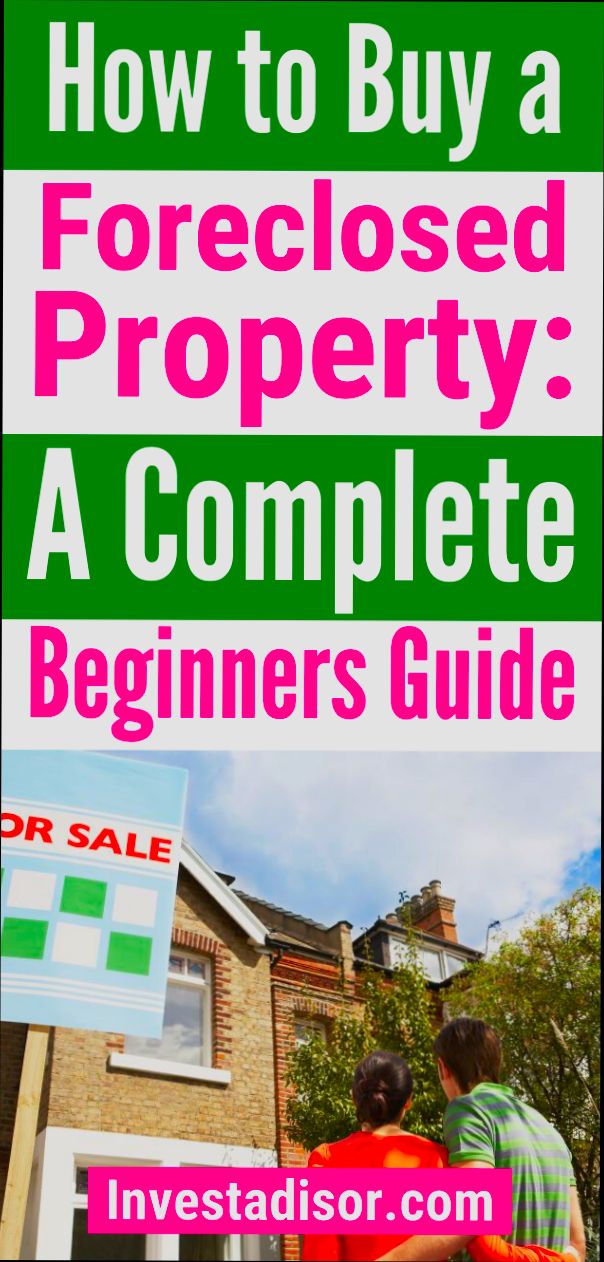
Navigating Auctions and Bidding Strategies
When it comes to buying foreclosed homes, navigating auctions and developing a solid bidding strategy are essential skills. Whether you’re attending a physical auction or participating online, understanding the dynamics of bidding can significantly influence your chances of securing a desirable property at a great price.
Understanding Auction Types
There are several types of foreclosure auctions, each with unique characteristics:
1. Public Auction: Usually held at a courthouse, these auctions allow bidders to compete openly.
2. Online Auction: Increasingly popular, these provide convenience and can attract a broader audience.
3. Investor Auctions: These are either invitation-only or limited to pre-approved bidders, often featuring properties that may not be available in public auctions.
To effectively strategize, familiarize yourself with the auction type you’ll be participating in and adapt accordingly.
Bidding Strategies
Utilizing effective bidding techniques is crucial to enhancing your success rate. Here are some strategies to consider:
- Set a Maximum Bid: Determine the highest amount you are willing to pay for a property and stick to it. This prevents emotional overspending.
- Start Low, Bid Smart: Opening bids often start low, allowing you to gauge interest. Place initial bids to test the waters without revealing your limits.
- Observe Competition: Pay attention to other bidders. Understanding their bidding patterns can help inform your decisions.
- Use Real-Time Market Data: Leverage auction platforms that provide up-to-date market insights to make informed bids.
Comparative Bidding Success Table
| Auction Type | Average Winning Bid (%) Over Market Value | Bidder Competitiveness Level |
|---|---|---|
| Public Auction | 15% | High |
| Online Auction | 10% | Medium |
| Investor Auctions | 20% | Very High |
Real-World Examples
Consider the story of Jane, who attended a public auction for a foreclosed property listed at $150,000. By following her maximum bid strategy, she set a cap of $160,000. After observing bidding patterns, she noticed a rival bidder consistently raising by only $1,000 increments. This allowed her to swoop in with a last-minute bid of $162,000, successfully securing the property under her budget.
Another case involved Mark, who utilized online auctions to invest in multiple properties. By analyzing bidding behavior and market conditions, he identified that online auction bids tend to hover around 10% over the market value. As a result, he set his bids strategically below this threshold, ensuring he outbid opponents without exceeding his financial limits.
Practical Implications
- Research Local Auction Trends: Stay updated on local auction trends and historical data to enhance your bidding strategy.
- Participate in Pre-Auction Workshops: Engage in workshops or webinars that cover auction strategies to boost your confidence and knowledge.
- Network with Experienced Bidders: Build relationships with seasoned bidders who can offer valuable insights and mentoring on effective strategies.
Actionable Advice
Before bidding, always examine the property and assess the potential repair costs. Develop a precise bidding strategy that encompasses your maximum bid, aligns with the auction type, and considers property evaluation results. Additionally, practice patience and be prepared to walk away if the bidding exceeds your limit—this discipline is key to successful investing.
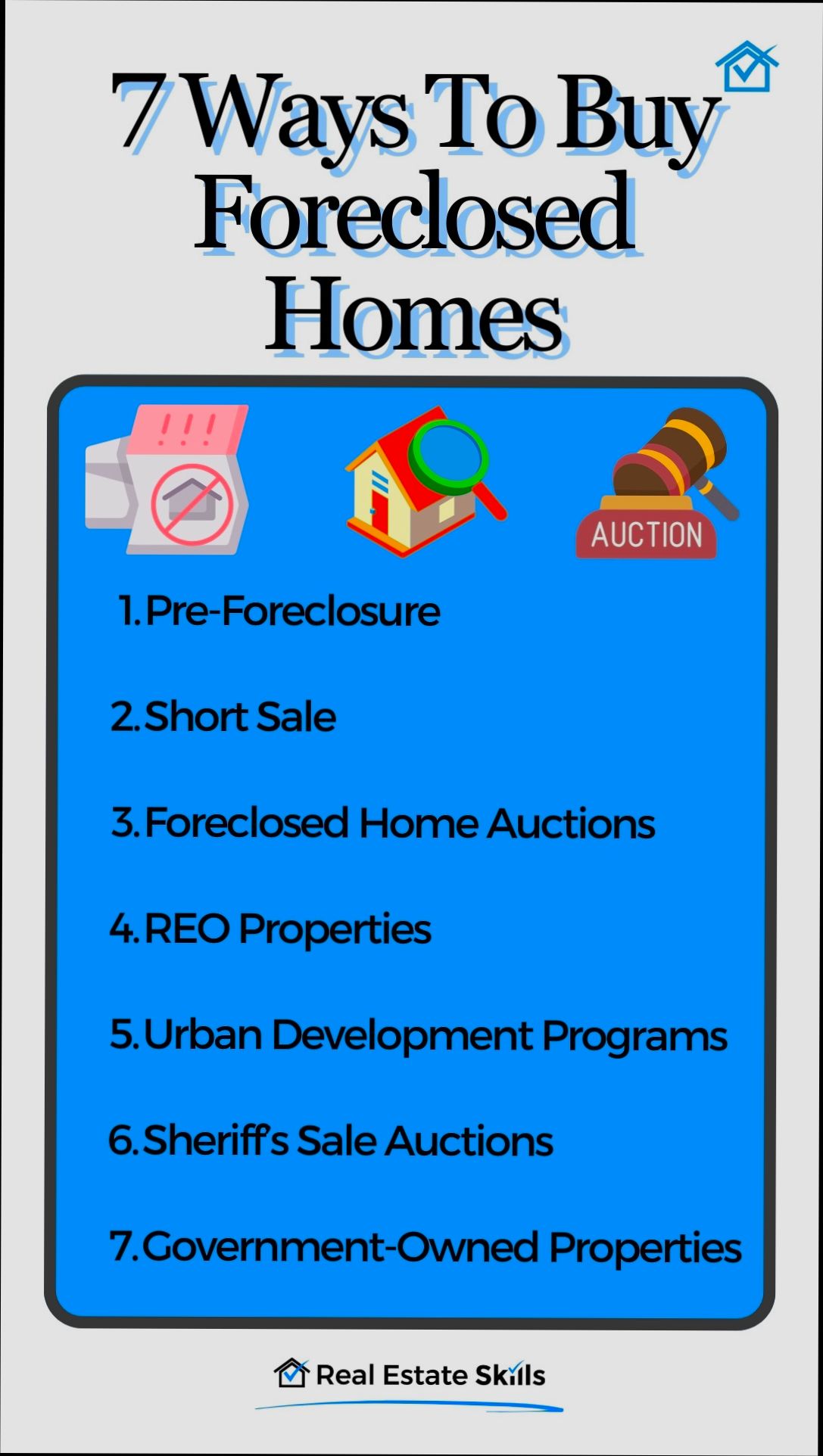
Real-World Success Stories from Investors
Investing in foreclosed homes has provided numerous investors with transformative financial returns and success stories. These real-world experiences demonstrate how strategic purchasing and smart renovations can yield impressive profits and long-term benefits.
Key Points from Successful Investors
- Strong Financial Upsides: Investors who focused on foreclosures have often reported returns of up to 30% in value appreciation after making the necessary renovations.
- Affordable Entry Points: Many investors acquired properties at 50% or more below market value, allowing for the potential of high returns with comparatively low initial investment.
- Diverse Strategy: Successful investors report using a mix of flipping, long-term rentals, and short-term rentals, catering to varying market demands and maximizing their income streams.
| Investor | Initial Purchase Price | Renovation Costs | Sale Price / Value After Renovation | Profit Margin |
|---|---|---|---|---|
| Investor A | $150,000 | $50,000 | $250,000 | 33% |
| Investor B | $200,000 | $30,000 | $300,000 | 35% |
| Investor C | $125,000 | $25,000 | $220,000 | 44% |
Real-World Examples
- Investor A: Purchased a foreclosed home in a growing suburban area for $150,000. After investing $50,000 in renovations, which included updating the kitchen and bathrooms, they sold the property for $250,000. This investor capitalized on the area’s rising demand and achieved a neat profit margin of 33%.
- Investor B: Acquired a distressed property at a cheap price of $200,000. With renovations costing around $30,000, this investor turned the house into a desirable rental. By maintaining it as a long-term investment, they appreciated its value to $300,000 over three years while enjoying rental income that covered the mortgage and more.
- Investor C: Found a foreclosed home for just $125,000. By spending $25,000 on essential renovations and smart staging, they increased its market value to $220,000, resulting in an impressive 44% profit margin. This investor showcased the importance of a well-planned renovation strategy.
Practical Implications for You
- Evaluate Potential: When pursuing foreclosed homes, always assess the property’s location and potential for value appreciation. Look for areas with growth indicators, such as new businesses or schools, as these can significantly impact a home’s future price.
- Budget Wisely: Allocate your budget not just for purchase but also for renovations and unexpected expenses. The examples show that successful investors closely monitored their spending, ensuring they didn’t overshoot their budgets while maximizing renovation outcomes.
- Flexibility in Strategy: Like our showcased investors, consider a blend of strategies. Whether flipping or renting, be adaptable to current market conditions and demands to see the best returns on your investment.
By diving into the realities of purchasing foreclosed homes, you can learn from the robust experiences of successful investors and derive actionable strategies for your own endeavors in this market.

Inspecting Properties: Key Considerations
When it comes to buying foreclosed homes, a thorough property inspection is essential. Not all foreclosures are created equal, and understanding what to look for can save you from costly surprises down the line. Here are some key considerations to keep in mind as you prepare to inspect a foreclosed property.
Assessing the Exterior
Start your inspection outside the home. Pay attention to these critical areas:
- Foundation and Structure: Look for cracks or settling that could indicate serious structural issues.
- Roof Condition: Inspect for missing shingles or sagging areas. A compromised roof can lead to expensive repairs.
- Windows and Doors: Ensure all units open and close properly. Damaged frames can often mean additional costs for replacement.
Evaluating the Interior Systems
Turn your focus to the internal systems of the house; crucial areas include:
- Plumbing: Check for leaks or water damage, particularly in basements and around appliances.
- Electrical System: Look for outdated or unsafe wiring. Houses built prior to 1970 may require upgrades to meet current codes.
- HVAC: Test heating and air conditioning to ensure they function properly. A faulty system can be costly to replace.
Common Inspection Challenges
Investors often encounter unique challenges when inspecting foreclosed homes. Here are a few:
- Access Restrictions: Some properties may not be accessible for thorough inspections, especially when they are still occupied or pending eviction.
- Unforeseen Repairs: Properties often suffer from neglect. A recent evaluation found that about 40% of foreclosed homes require significant repair work.
- Hidden Costs: Be alert for signs of mold or pest infestations. A hidden problem could lead to substantial costs after purchase.
| Inspection Aspect | Issues Found (%) | Potential Repair Costs ($) |
|---|---|---|
| Foundation | 25% | $5,000 - $10,000 |
| Roof | 40% | $3,000 - $15,000 |
| Plumbing | 30% | $1,500 - $8,000 |
| Electrical | 35% | $2,000 - $7,500 |
Real-World Inspection Case Studies
To illustrate the importance of thorough inspections, consider these real-world cases:
- Case Study 1: An investor purchased a foreclosed home without a proper inspection. They later discovered severe water damage, costing them over $15,000 in repairs.
- Case Study 2: Another investor thoroughly inspected before purchase and found an outdated electrical system. By addressing this before closing, they avoided potential $7,500 renovation costs later.
Practical Tips for Effective Inspections
To maximize your inspection results, follow these actionable guidelines:
- Bring a checklist to ensure you cover all essential areas during your walk-through.
- Don’t hesitate to employ a professional inspector for a comprehensive analysis, especially for structural or major system evaluations.
- Plan for a follow-up inspection after any repairs to verify that issues have been correctly addressed.
By being vigilant and methodical when inspecting foreclosed homes, you can significantly mitigate risks and enhance your potential returns. Pay attention to both visible and hidden problems—your pocketbook will thank you!
